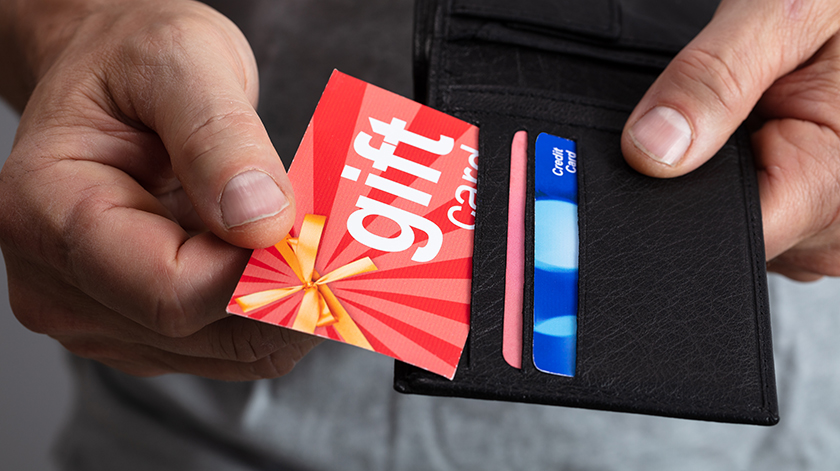Gift cards are criticized by some as being lazy, thoughtless, last-resort gifts, but the sentiment is changing. In fact, as Forbes noted in 2022, with rising inflation, gift cards are becoming a more welcome idea because they help recipients purchase (or at least reduce the cost of) otherwise unattainable items.
And yet, each holiday season, we return to the debate. Are they practical, meaningful gifts? Are they impersonal gestures? What’s more, with the rise of gift card scams, are they even safe?
In Favor of the Gift Card
They are practical when you know a little about the recipient’s likes and dislikes. Sure, gift cards are great for gifting to people you don’t know very well. But they can also reveal how much you know about someone in a thoughtful way. That plant lover from the office? They might feel touched to receive a gift certificate from an online plant retailer. The sneakerhead on your list? They would be stoked to get a Nike, adidas, or Vans gift card.
People can choose what they want to buy. Are you buying a gift for someone who is very choosy about their style? Trying to find a present for a loved one who already seems to have everything? A gift card is a good bet because it empowers them to choose what they like. Gift cards are also a smart choice for unpredictable teens and young adults who still need a lot of essentials but like to make their own choices. Rather than gifting them a tea kettle you hope they’ll enjoy, give them a Crate & Barrel gift certificate, and let them choose something they will love forever.
It’s cheaper than mailing packages. If you are giving gifts to friends and loved ones far away, sending gifts can get expensive. On the other hand, a digital gift card costs nothing to send—and it won’t get lost in a mailroom somewhere.
The Downsides of Gift Cards
Gift cards limit where you can shop.
If you have ever received a gift card from a restaurant or store you never go to, you understand the frustration of this argument.
Gift cards can easily be lost.
Gift cards are very easy to lose. In fact, a great number of them get tossed with the holiday wrapping paper at the end of the gift-giving frenzy. To prevent this, take a picture of the card, register it, or add it to your mobile wallet. If you are giving a gift card, consider sending a digital card instead of a physical one.
Gift cards sometimes come with hidden fees.
When gift cards first became popular (in the late 90s) many shoppers were shocked to find their cards would slowly lose value over time. These days, there are federal restrictions in place to prevent excessive fees, but legally speaking, you can be charged an “inactivity fee” if the card sits in your wallet for over a year (although many major retailers no longer charge such fees).
Gift cards often go unused.
Maybe it’s lost. Perhaps you can’t decide what to buy. Maybe the amount of the gift card is too small. Or maybe you just don’t like The Olive Garden. Whatever the reason, almost two-thirds of us have at least one unspent gift card in our possession (assuming we can find it). In fact, a recent survey from Credit Summit shows that on average, there is as much as $21 billion tied up in lost or unredeemed gift cards. Fortunately, current laws prohibit them from being sold with expiration dates (unless the gift card is sold at a discount).
Gift cards are often used for scams.
As useful as they are, gift cards are also a frequent tool of scammers who use them to defraud people of their money. Why? Because they’re just like cash and misuse is hard to trace. According to the Federal Trade Commission (FTC), one in four people who report losing money to fraud say it happened when a scammer tricked them into sending money via a gift card.
Whether you love them or loathe them, gift cards can be a practical and considerate option. If you choose to give gift cards this year, keep the following safety tips in mind:
- Buy your cards from a reputable source or from the retailer directly.
- Make sure the cards are not expired or near their expiration date.
- Make sure the cards have not been tampered with. If it looks like the PIN has been scratched off or exposed, don’t buy the card.
- Save the gift card receipt and give a copy to the recipient. This will help you if the gift card is lost or stolen.
- If you are gifting more than $100 in gift cards, purchase them with a credit card. If something goes wrong, you’ll have a better chance of getting your money back.
Want to learn more about gift card scams? Check out our follow-up post, “How to Avoid Gift Card Scams”.

